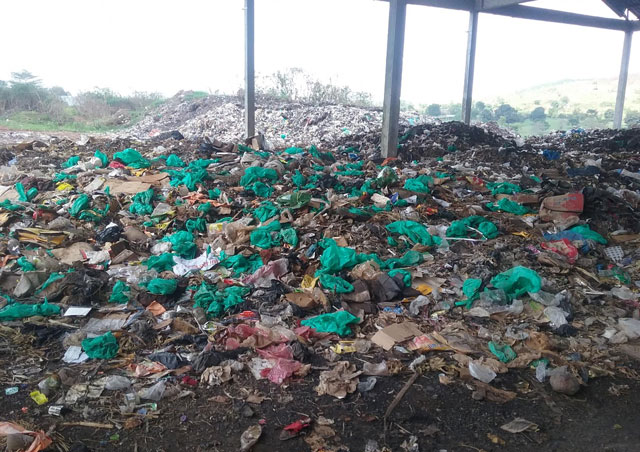
Kampala, Uganda | THE INDEPENDENT | Uganda must ratify and apply international agreements on the environment to boost its efforts to eliminate plastic waste. Uganda spends Shillings 10 billion annually to clear drainages of plastic waste according to a study.
This follows 15 years of attempting to ban the production, importation, sale and use of plastic carry bags (Kaveera) to tame the plastic population, among other adverse effects of the material. The study conducted by Bio Vision Africa, an environmental research and conservation company, shows that Uganda generates approximately 600 metric tons of plastic waste every day.
On March 2, the fifth session of the UN Environment Assembly (UNEA-5) sitting in Nairobi, Kenya, adopted a resolution to pave way for the establishment of a legally binding global treaty by 2024 to end plastic pollution. The resolution titled “End plastic pollution: Towards an internationally legally binding instrument”, aims at significantly removing plastic waste from the environment, especially water bodies.
The government first announced a ban targeting polyethene bags of 30 microns or less in 2007, and subsequent ones in 2009, 2015, 2018 and 2021. Thousands of kilograms of the materials were confiscated from supermarkets and factories, several of which were closed by the National Environment Management Authority.
According to NEMA, the operation is still ongoing but is being hampered by the difficulty the traders and users find in telling the thickness of the material. The ban is enforced under the National Environment Act of 2019, which mandates NEMA to protect the environment and the Uganda National Bureau of Standards that enforced standards of different products.
The authority has appealed to Parliament to make a law that is easier to enforce.
But Bio Vision Africa Executive Director, Geoffrey Kamese says plastic waste and pollution is not a one-country issue and would be easier to tackle regionally and internationally.
He says if Uganda joins and commits to the resolution, the enforcement agencies will have more resources and mandate to enforce a ban. The ministers for the environment from around the world agreed at the Nairobi meeting to establish an Intergovernmental Negotiating Committee with the mandate to forge an international legally binding agreement to end plastic pollution.
Espen Barth Eide, the President of UNEA-5 and Norway’s Minister for Climate and the Environment said, “Plastic pollution has grown into an epidemic. With today’s resolution, we are officially on track for a cure.”
Each time government issues a ban, a conflict arises between industrial lobbyists and the government over the expected loss of investments, the grace period and other issues, and the operations die down without much success. Since 2007, Rwanda has been the most successful in the East African Community in implementing a ban on the bags, and recently, Kenya and Tanzania have also registered successes.
While the country was the first to announce a ban in 2007, today, all the neighbouring countries blame the presence of the banned materials inside their borders, on smuggling from Uganda. According to the study, it gets even harder to fight because of the nature of the industry, some of the factories are too small to even be located by the authorities, and operate with no registered address or name.
Kamese says there might be more than 90 factories in the country, with half of them even operating undercover.
The study further recommends stronger policies, strengthening of enforcement agencies, increased public sensitization and increased stakeholder collaboration. The public should be targeted with more messages that discredit the use of the bags, according to the study.
“The perceived convenience and affordable cost of single-use carrier shopping bags has resulted in their widespread consumption; unfortunately however, the improper use and disposal of SUPs and other plastics has exacerbated the plastic pollution on the Ugandan landscape,” says Kamese.
BiVA’s investigation into illegal manufacture, distribution, sell both within the country and across the borders covered areas of Kampala, Mukono (Mbalala and Namanve), Iganga, Jinja, Mayuge, Namayingo, Busia, Tororo, Malaba, Mbale and Suama border in Bukwo district and Western Kenya.
The study findings show that the illicit trade thrives because the consumer market is still unclear regarding the alternatives, despite several being available, including traditional African ones. Kamese also reminded of the dangers of misusing the kavera, including in the preparation of food and burning which produces dangerous smoke.
*****
URN
 The Independent Uganda: You get the Truth we Pay the Price
The Independent Uganda: You get the Truth we Pay the Price


